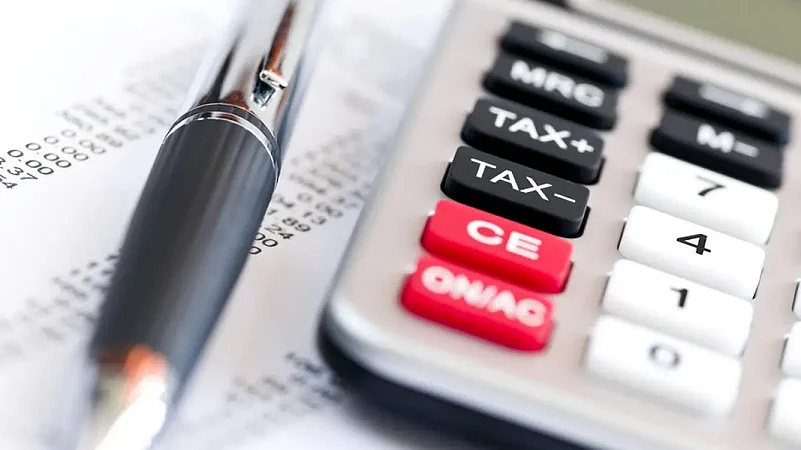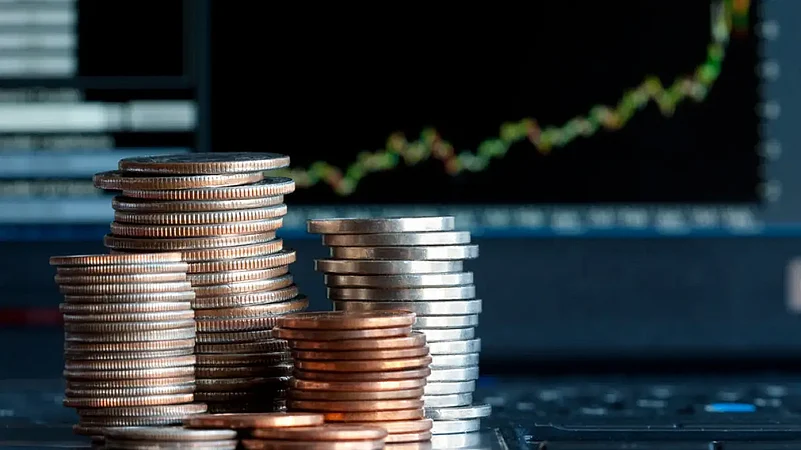About 10 days before tax deducted at source (TDS) becomes applicable on transactions in virtual digital assets (VDAs) or cryptocurrencies from July 1, 2022, the Central Board of Direct Taxes (CBDT) has come up with several clarifications regarding how it will work.
Indian crypto exchanges, including CoinDCX, have already started intimating their customers about the new taxation law and what users need to do to comply with this law.
CBDT has said that exchanges would be required to give a quarterly statement furnishing such types of transactions in the prescribed Form 26QF and before the due date as specified.
Sudhakar Sethuraman, Partner, Deloitte, India, said "With the TDS provisions on transfer of VDA Will be effective from July 1, 2022, the guidelines released have set in some clarity on operations/implementation of TDS. While there are many details required to be reported in the withholding statement, the compliance responsibility of the individuals is on the higher side. Guidelines eased out the deduction onus when multiple persons are involved(exchange, broker, seller, and buyer), TDS in case of transfer in kind.”
Here are some frequently asked questions (FAQs) on how this new law will work and what users need to do. However, it makes sense to approach your respective exchange for further clarity.
Who Will Pay TDS?
After July 1, if you want to buy a cryptocurrency or any other VDA such as a non-fungible token (NFT), you will have to pay 1 per cent of the value of your purchase to the seller, who could be an individual or exchange.
“The new section mandates a person, who is responsible for paying to any resident any sum by way of consideration for transfer of a virtual digital asset (VDA), to deduct an amount equal to 1% of such sum as income tax thereon,” read the circular by CBDT.
The law is applicable to resident Indians. It is also applicable to non-resident Indians (NRIs) if the NRI buys VDAs from an Indian but there will be no TDS if an NRI buys through another NRI.

Who Doesn’t Need to Pay TDS?
CBDT in Section 194S of the Income-tax Act, 1961, has clarified that this TDS deduction is not required to be deducted in two cases. Those are:
For Specified Persons: If specified persons are dealing with VDAs and the transaction value or the total aggregate value during the financial year does not exceed Rs 50,000, then TDS is not required to be deducted.
As per the CBDT clarifications specified persons are:
An individual or Hindu undivided family (HUF) who does not have any income under the head profit and gains of business or profession.
An individual or HUF having income under the head profits and gains of business or profession but their total sales or gross receipts or turnover from business does not exceed Rs 1 crore or in case of professionals does not exceed Rs 50 lakh.
All the above financial limits will be checked by CBDT for the financial year immediately preceding the financial year in which the said VDA was transferred.
For Others: For others dealing with VDAs, no TDS is required if the transaction value or the aggregate value during the financial year does not exceed Rs 10,000.
What About Direct Transfers Through Cash?
CBDT said that for peer-to-peer transactions, the buyer of VDAs (the person who is paying the money or other consideration for this VDA) will deduct TDS as specified in this section (194S).
What About Cash Transfers Through Exchanges?
CBDT has said that in this case buyers would be crediting or making payment to the exchange (directly or through a broker). The crypto exchange then would be required to credit or make payment to the owner of VDA being transferred, either directly or through a broker.

Here is how it will work under various circumstances:
Where VDA is transferred via an exchange, which doesn’t own it: In this case, it is the duty of the crypto exchange which is making this payment for sale of VDA to the owner of such VDA to deduct TDS.
If the broker owns the VDA and is the seller, too, TDS will be deducted by the crypto exchange and then the sale proceeds will be paid to him after such deduction.
Where the P2P VDA transaction takes place between the exchange and the seller through a broker, who is not the seller: The responsibility of deducting TDS on P2P VDA transactions shall be on both the broker and the crypto exchange. But “if there is a written agreement between the Exchange and the broker that the broker shall be deducting tax on such credit/payment, then the broker alone may deduct the tax under section 194S of the Act,” clarified CBDT.
Where the Transfer of VDAs takes Place on or through exchanges, which is the owner: There are no multiple players here: the VDA sold is owned by the exchanges and the platform where the buyer will buy this VDA is also owned by the exchange. In this case, the buyer will deduct TDS and pay the remaining amount to the exchange.
“There may be a practical issue as the buyer may not know whether the VDA being transferred is owned by the exchange or not,” said CBDT in the circular.
To make it practical, exchanges may enter into a written agreement with the buyer of such VDAs or broker regarding payment of TDS on or before the due date of the quarter in which this P2P transaction is taking place.
What About Non-Cash Direct Transfer?
If two VDA owners exchange their own VDAs, then it will be the duty of the buyer to ask the seller for proof of payment of tax, such as TDS challan details. CBDT clarified that the buyer must only release funds after this proof is received by him.
“Thus both need to pay tax with respect to transfer of VDA and show the evidence to the other party so that VDAs can then be exchanged. This would then be required to be reported in the TDS statement along with challan number. This year Form No. 26Q has included provisions for reporting such transactions. For specified persons, Form No. 26QE has been introduced,” said CBDT.
What About Non-Cash Transfer Through Exchanges?
The exchanges will have entered into a written agreement with the buyer/seller of the VDA that they will pay the tax.
Both parts of the transaction are required to pay TDS. And this information will be needed to be explained in Form 26Q by the exchanges. “At the time of transaction, the Exchange will deduct TDS in the pair being traded. For example, in case of trade for Monero to Deso, 1% of Monero and 1% Deso will be deducted as tax under section 194S of the Act by the Exchange and balance shall be transferred to the customer,” said CBDT.
























.png?w=200&auto=format%2Ccompress&fit=max)






